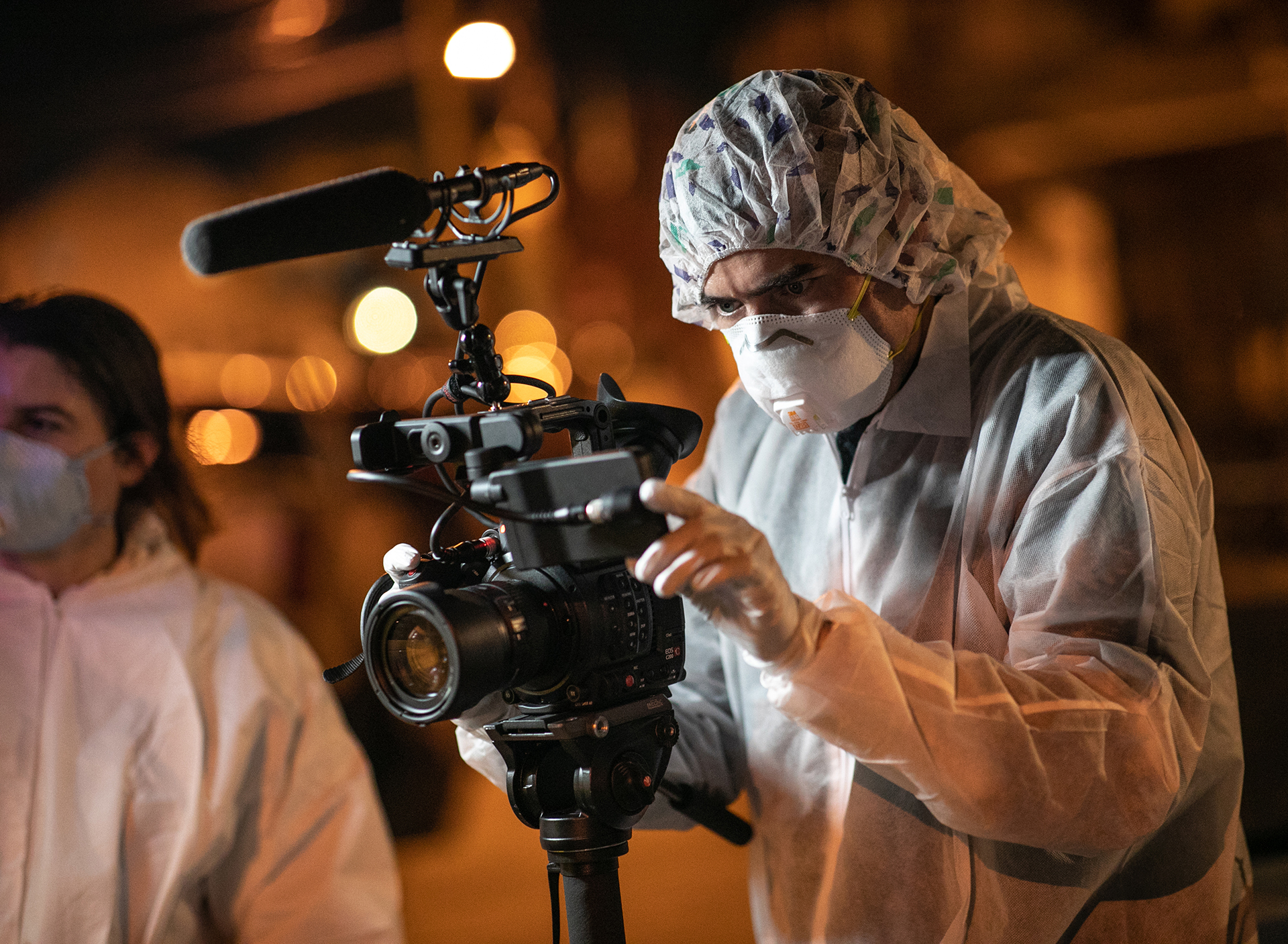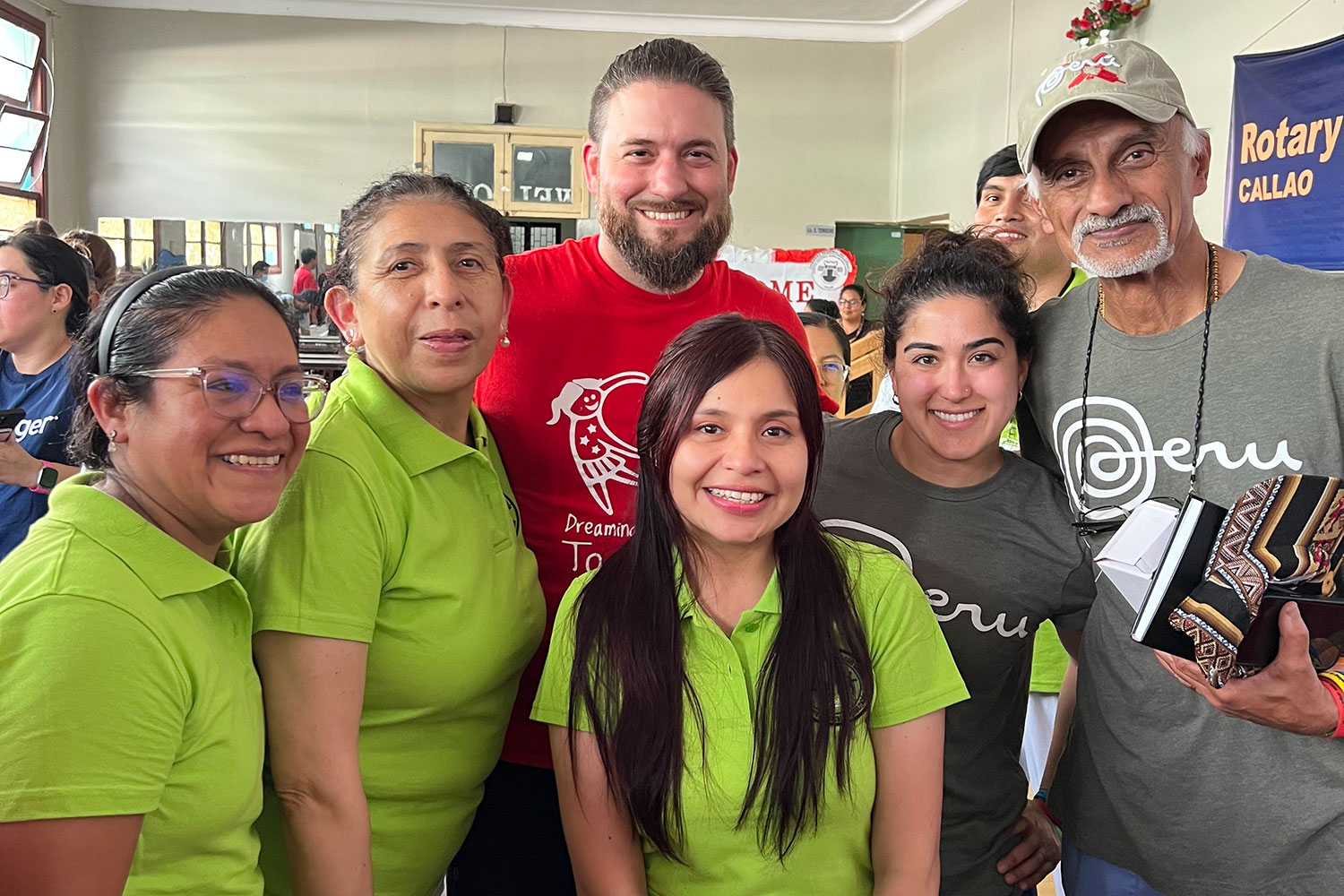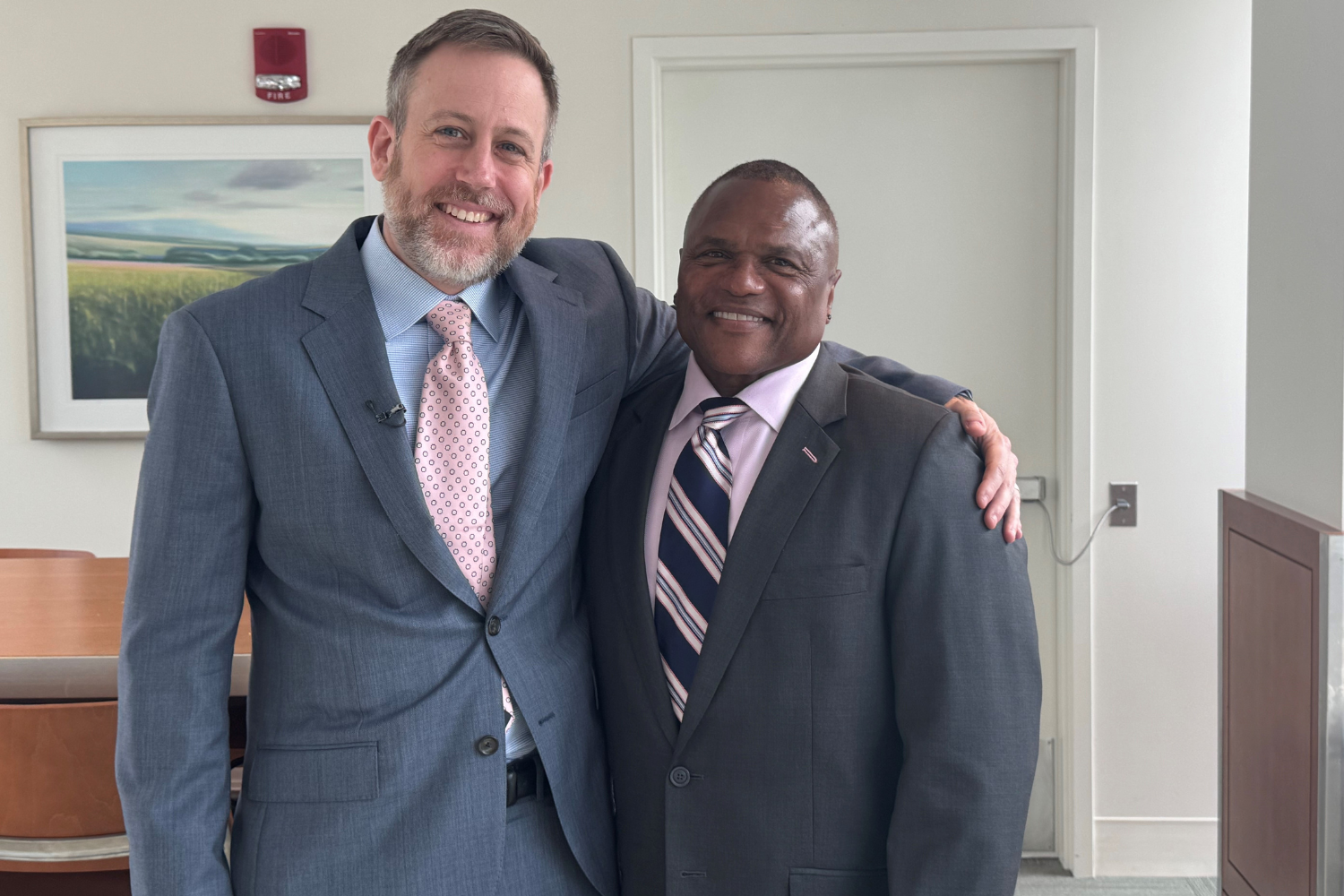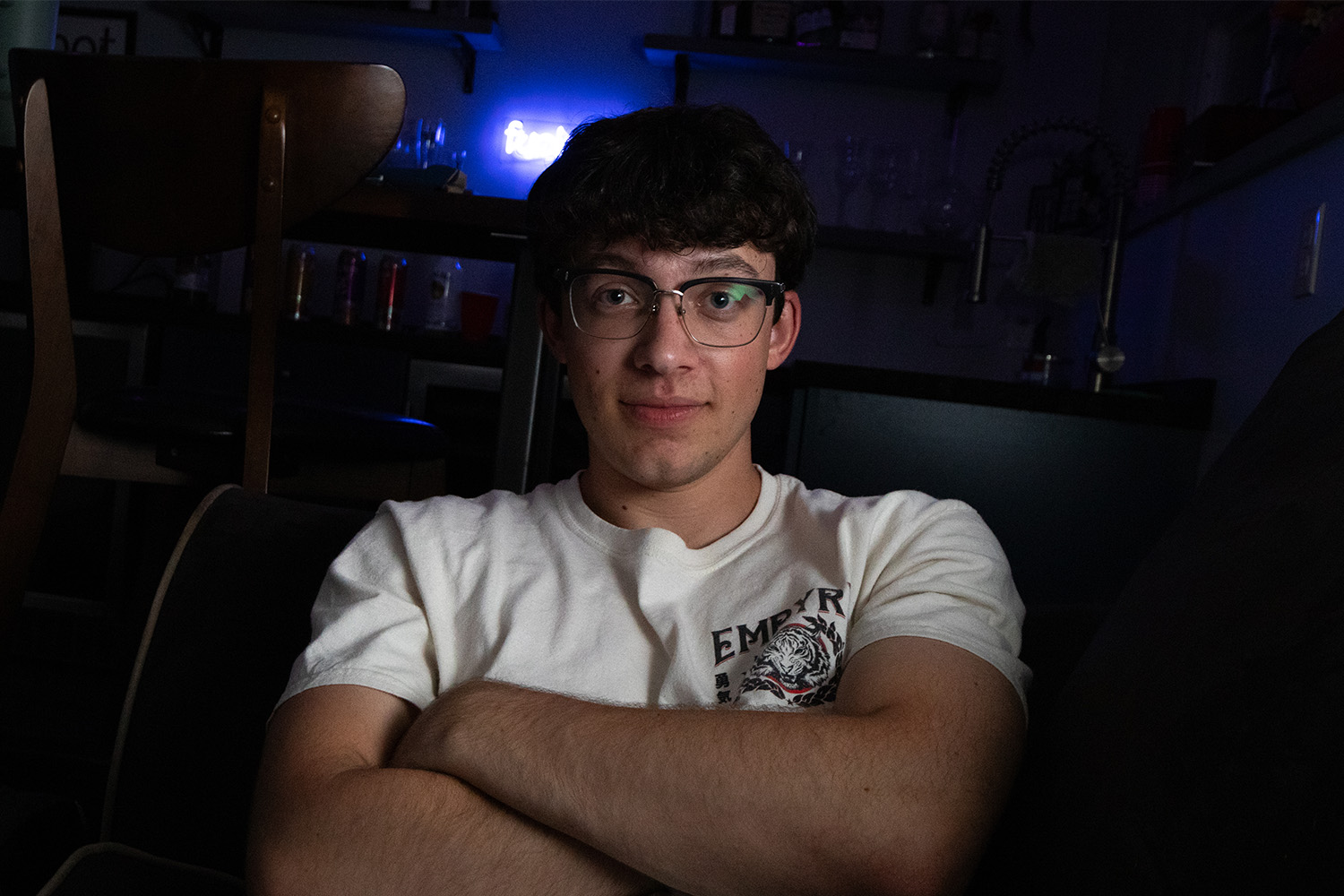When the story of an elementary school teacher in Stamford, Connecticut, taking care of the newborn brother of one of her students became public in early May, the media put a spotlight on the situation of an immigrant family from Guatemala that was battling COVID-19.
Luciana Lira, a bilingual teacher, cared for the newborn baby for more than five weeks while the family’s mother, father and son recovered from their illness and could reunite. They are now together at home.
The behind the scenes story of the family’s saga will be told to a national audience on Tuesday, Aug. 11 at 10 p.m. on the PBS series Frontline in the episode titled “Love, Life & the Virus,” which was written, produced and directed by filmmaker Oscar Guerra, an assistant professor of film/video production who teaches in the Digital Media & Design Department at UConn’s Stamford campus.
Guerra, a San Francisco/Northern California Emmy Award-winning director got in touch with photojournalist and Pulitzer Prize winner John Moore, to start documenting his coverage of the pandemic. Moore was informed by Catalina Hork from Building One Community about the family’s case and he told Guerra about the story.
Guerra focuses his work on producing media that provides a way for underrepresented groups to share and disseminate their own stories to contradict dominant and potentially stereotypical narratives while strengthening their voices and identities.
“I consider myself an educator and I do try to shed some light on the problems that are affecting the community, in my case the Latino community,” he says of why he decided to film in Stamford Hospital before learning of the family’s story. “I want to make sure I bring an awareness of the realities of the Latino working class, which tends to be one of the more vulnerable communities.”
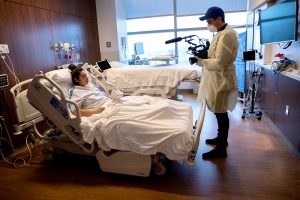
Weeks before the story became public, Guerra dressed in personal protective equipment to film and interview patients and healthcare providers. When the Mexican-born filmmaker learned of the family’s situation, and that the teacher and others involved were of Latinx heritage, he sought and received permission from the family to document their experiences.
“I wanted to honor and show the reality of the Latino community,” he says.
Part of the community effort to support the family – mother Zully, father Marvin and their son Junior and newborn Neysel – included a GoFundMe campaign managed by Lira and the assistance from community partners like Building One Community and Tiny Miracles.
In addition to the Frontline production, Guerra’s film will also air in a Spanish language version on the international Univision network program “Aqui y Ahora” on Aug. 16 at 7 p.m.
“I feel fortunate I’m able to bring this story to a larger audience, particularly the Latino community as this is our story,” Guerra says.
Heather Elliott-Famularo, Donna Krenicki Professor of Design and Digital Media and head of the department, initiated the film production program last year and has worked with UConn’s Human Rights Institute on several projects.
“All of the film faculty that we’ve hired are passionate about diversity and social justice issues. We’re creating something new here,” she says. “Students are also working in other genres and can make dramas, comedies, or whatever they want, but we have intentionally hired faculty who are passionate about human rights and want to tell meaningful stories to teach our students. What we are creating in DMD is novel and exciting. I’m proud of Oscar and his commitment to the Connecticut Latinx community. And how many brand new film programs can boast that they already have a documentary being broadcast nationally?”
Guerra won a San Francisco/Northern California Emmy Award in 2018 for directing a piece on San Francisco Giants’ star and broadcaster Tito Fuentes and his work also is recognized with honors from the Jelly Film Festival, BEA Festival of Media Arts, International Ocean Film Festival, San Francisco Latino Film Festival and the San Francisco Urban Film Festival. He joined the Digital Media & Design faculty in fall 2019.
The second part of the Frontline program will include “Undocumented in the Pandemic,” by director Emily Kassie, which tells the story of another immigrant family’s struggle, with their dad detained by ICE in a facility where COVID-19 is spreading.
